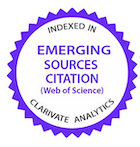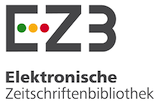Principais causas de condenação ao abate de aves em matadouros frigoríficos registrados no serviço brasileiro de inspeção federal entre 2006 e 2011
DOI:
https://doi.org/10.1590/1089-6891v17i123020Palavras-chave:
Abate, Aves, Condenação, Doenças, TecnopatiasResumo
A indústria avícola no Brasil, bem como o consumo interno e exportações de carne de frango têm apresentado um expressivo crescimento. O Serviço de Inspeção Federal é responsável pela inspeção sanitária ao abate de aves e registra rotineiramente as lesões ou doenças identificadas no Sistema de Informação Gerenciais do Serviço de Inspeção Federal (SIGSIF). O objetivo deste estudo foi identificar as principais causas de condenação de aves em matadouros-frigoríficos registradas no Serviço de Inspeção Federal a partir dos dados lançados no sistema SIGSIF entre 2006 e 2011. O índice de condenações observado neste período foi de 5,99%, sendo que as principais causas foram: contaminação (1,80%), contusão/lesões traumáticas (1,57%), dermatoses (0,74%) e celulite (0,50%). Diferenças regionais foram observadas na ocorrência das condenações e apenas no caso das dermatoses observou-se um comportamento sazonal. O SIGSIF constitui uma importante fonte de informação sobre as causas de condenações ao abate de aves, podendo ser uma ferramenta útil para a avaliação dos fatores causais e para a proposição de medidas de prevenção ou mitigação de riscos.
Palavras-chave: abate; aves; condenação; doenças; tecnopatias.
Downloads
Publicado
Como Citar
Edição
Seção
Licença

Este trabalho está licenciado sob uma licença Creative Commons Attribution 4.0 International License.
Autores que publicam nesta revista concordam com os seguintes termos:
- Autores mantém os direitos autorais e concedem à revista o direito de primeira publicação, com o trabalho simultaneamente licenciado sob a Licença Creative Commons Attribution que permite o compartilhamento do trabalho com reconhecimento da autoria e publicação inicial nesta revista.
- Autores têm autorização para assumir contratos adicionais separadamente, para distribuição não-exclusiva da versão do trabalho publicada nesta revista (ex.: publicar em repositório institucional ou como capítulo de livro), com reconhecimento de autoria e publicação inicial nesta revista.
- Autores têm permissão e são estimulados a publicar e distribuir seu trabalho online (ex.: em repositórios institucionais ou na sua página pessoal) a qualquer ponto antes ou durante o processo editorial, já que isso pode gerar alterações produtivas, bem como aumentar o impacto e a citação do trabalho publicado (Veja O Efeito do Acesso Livre).






























